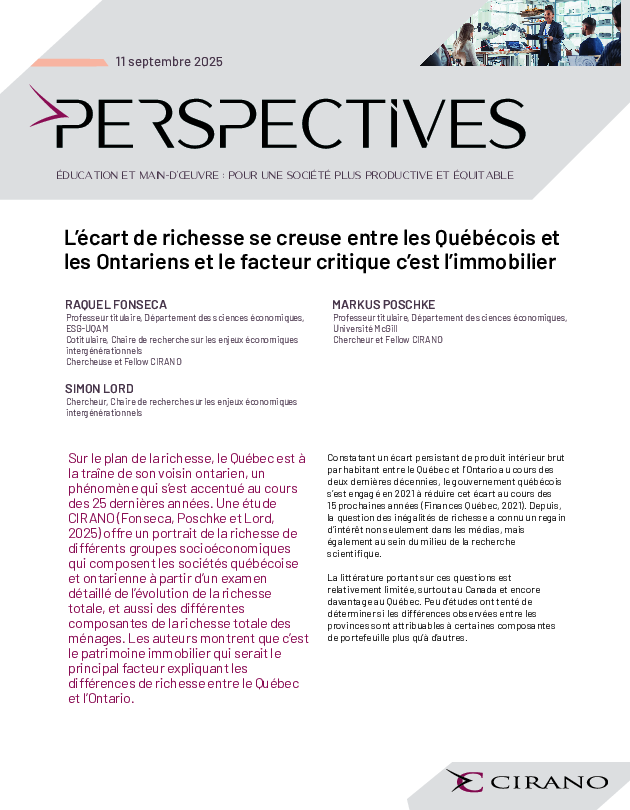COVID-19 – Reinventing our governance and operating models. The Turning Point for Canada and Québec?
We are in the early stages of a cascading series of crises, with repercussions around the world. The COVID-19 pandemic is not only a global medical and economic emergency. It is perhaps a critical starting point for the current global system of political and economic cooperation. Major crises are usually trend accelerators, and this one will be no exception.
The magnitude of this crisis cannot be overestimated in the Canadian context. It is an urgent wake-up call. The severity of this pandemic forces us not only to adapt, but also to reinvent the way our institutions function. It also compels us to adopt a new way of thinking and managing public and private organizations, as well as our ways of working together.
We cannot rule out the likelihood of an economic depression. In such circumstances, it is prudent to prepare Canada for a fundamental and lasting disruption. In this new context, Governments in Canada need to reinvent their governance and operating models by instituting agility and become instruments of adaptation just as they are the architects and implementers of public policies and programs.
The initiatives and measures required to reset the Canadian economy will be more important than the coronavirus crisis itself: they will determine the prosperity and quality of life of future generations. Innovation must be the key to managing the current health crisis and adapting to the "new normal".
To be effective, Canada's response cannot be fragmented. It must be integrated and coherent, it must also be agile and focused on results.
The roadmap recommended by the Economic Strategy Tables in 2018 and the policy instruments deployed since, are still valid. However, they must be adapted to the circumstances and the urgency to act and to produce results commensurate with this major crisis and its considerable impact on the Canadian economy.
The leadership role to be assumed by public authorities is fundamental: public expectations in this regard are very high, as illustrated by Edelman's Spring Update: Trust and the COVID-19 Pandemic in Canada.
The courses of action proposed in this report are in line with the initiatives taken and the investments identified. They are not a defence of the status quo. They are starting point for joint public-private management according to a new agile model of collaboration focused on implementing the solutions and exceptional effort required to create the new innovative and resilient society and economy to which we all aspire. As such, the recommendation of the Health Economic Strategy Table to create a national digital health strategy with an interoperable digital health platform should be implemented with the highest priority.
Canada has fallen behind in the deployment of data and augmented intelligence strategies within the federal government and most other jurisdictions in the country. In this regard, the lack of an integrated digital national strategy is the missing transformative link in the Government of Canada's chain of policy instruments.The roadmap, as outlined in this report, sketches a path towards the post-COVID-19 "new normal".
The national recovery effort through innovation will not achieve its full impact without accelerating and deepening the implementation of the Canadian Free Trade Agreement. The necessary federal-provincial undertaking to complete the creation of a single market in Canada should be supported by the joint priority implementation of the announced strategies to modernize supply chains infrastructure and the national transportation network. The proposed taskforce on the domestic market should work collaboratively with strategic taskforce on international trade.
The proposed model of governance and coordination of the strategic taskforces does not call into question the responsibilities of the different jurisdictions or the autonomy of the different stakeholders in managing the crisis. Its sole objective is to promote joint, effective
public/private, and inclusive management of the development and implementation of the recovery plan, through the five cross-cutting strategic taskforces proposed in this report.




